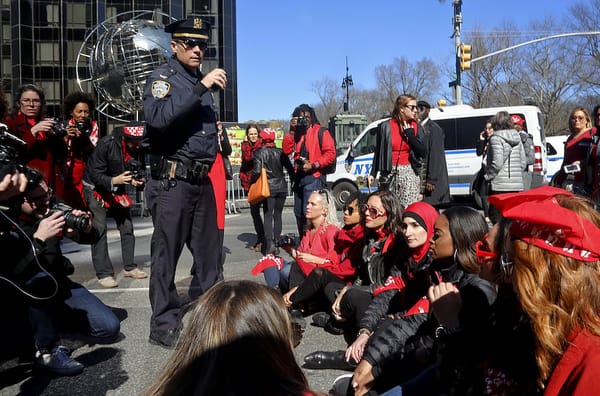
News
Read More
Sharia Law Proponent Experiences American Law, Lives To Tell About It
Evan LipsSharia law proponent Linda Sarsour, a co-organizer of Wednesday's women's strike and other assorted feminist demonstrations that have popped up ever since President Donald Trump's election win in November, recently became acquainted with American law after she and other protesters refused to leave the Manhattan street in front of Trump Tower.
